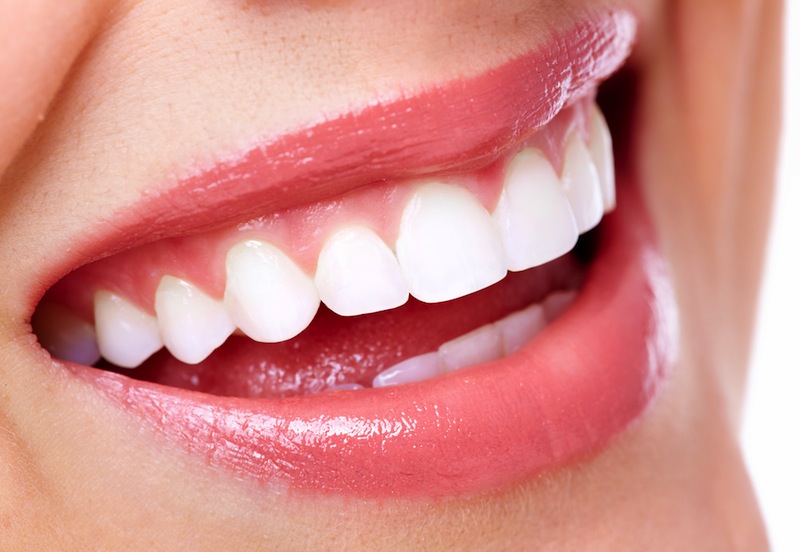What the Bacteria in Your Mouth May Reveal About Your Cancer Risk

WASHINGTON — The types of bacteria in your mouth may be linked to your risk of certain cancers.
By studying the links between bacteria and cancer, scientists one day hope to be able to tell a person what his or her cancer risk is based on the bacteria present in his or her body, said Jiyoung Ahn, an associate professor of epidemiology at the New York University School of Medicine. Perhaps more important, Ahn said, these bacteria and microbes, collectively called the microbiome, could give people information about what they can do to lower their risk.
Ahn presented her research about these links here today (April 2) at the American Association for Cancer Research's annual meeting. [Body Bugs: 5 Surprising Facts About Your Microbiome]
Research into the body's microbiome is relatively new, Ahn said.
In fact, only within the past five years or so have scientists recognized that 80 percent of the bacteria found in the human body can't be grown in a lab dish, Ahn told Live Science. That means that previous research that focused on growing bacteria from humans in labs provided only a small part of the picture of the human microbiome.
It was only when researchers began sequencing the DNA of the bacteria taken from people that they were able to complete the picture and identify the many missing microbes, Ahn said.
Now, scientists are starting to understand the potential links between the oral microbiome and certain cancers, Ahn said. Her research has focused on several cancers, including pancreatic cancer and esophageal cancer.
Sign up for the Live Science daily newsletter now
Get the world’s most fascinating discoveries delivered straight to your inbox.
Body bugs
All people share a "core" microbiome, Ahn noted. "In this room, I bet everyone" has microbes from the same five main groups of bacteria, she said during her talk. But within these large groups, there's variability among people; for example, one person may have more bacteria from one genus than another person has, she said.
Researchers now want to know whether this variability may be linked to people's cancer risk, she said.
In Ahn's research on pancreatic cancer, her team found that people who had higher levels of one type of oral bacteria, Porphyromonas gingivalis, had a 60 percent higher risk of developing pancreatic cancer compared with people who had lower levels of these bacteria. And higher levels of another type of oral bacteria, Aggregatibacter actinomycetemcomitans, was linked to a more than doubled risk of pancreatic cancer, she said.
Pancreatic cancer is one of the deadliest cancers, in part because it's very difficult to diagnose at an early stage, Ahn said during her talk. She hopes that, in the future, doctors will be able to identify the disease by looking at a person's oral bacteria.
There are also differences in the oral microbiomes of people with esophageal cancer compared with the oral microbiomes of people who do not have the disease, Ahn said. For example, people with esophageal cancer tend to have much lower levels of a type of bacteria called Proteobacteria, she said. [5 Ways Gut Bacteria Affect Your Health]
In both cases — pancreatic cancer and esophageal cancer — more research is needed to determine if there is a cause-and-effect relationship. In other words, researchers do not know whether the differences in bacteria in a person's mouth may cause cancer or if they are a sign of some other change in the body.
But other earlier research also suggested a cancer link. Studies in animals, for example, have shown that the bacteria in the mouth can travel throughout the body, Ahn said. Other research has suggested that certain bacteria may interact with receptors on the surfaces of cells in a way that contributes to cancer, she said.
Other factors, including smoking and alcohol, also may play a role. Both smoking and drinking alcohol can change the oral microbiome, Ahn said. And indeed, both are risk factors for esophageal cancer and pancreatic cancer.
Smokers, for example, have much lower levels of Proteobacteria in their mouths compared with people who have never smoked, Ahn said. If a person quits smoking, the levels of Proteobacteria gradually increase over the years, she added.
Furthermore, studies have shown that people who have more than two drinks per day have lower levels of Lactobacillus bacteria, Ahn said. Lactobacillus bacteria are some of the "friendly" bacteria often found in probiotics.
Originally published on Live Science.











